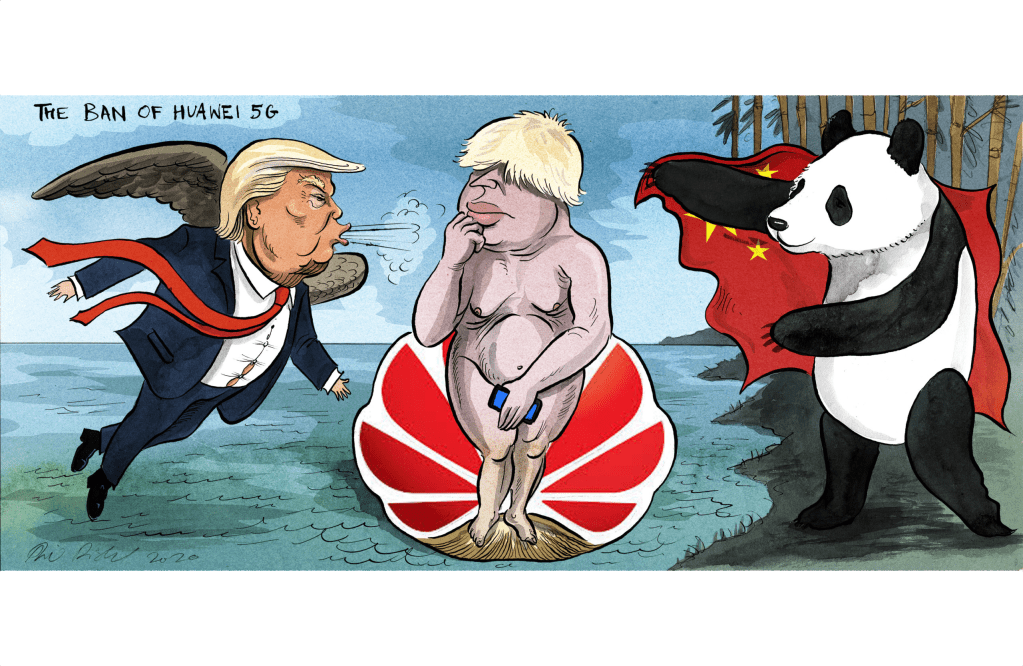The declaration by the Federal Communications Commission that Huawei and fellow Chinese comms firm ZTE are national security threats is likely to have a clear outcome in the UK. It will knock the government further down the path it already seemed to be traveling: reversing its decision to allow Huawei to play a role in Britain’s 5G communications network.
Boris Johnson’s government surprised many earlier this year by approving Huawei to build what it called ‘non-core’ parts of the network, in spite of US threats to withhold the exchange of intelligence if Huawei was allowed to be involved. He made the decision in spite of warnings from Britain’s own security services. Head of MI6 Alex Younger has warned that ‘in China they have a different legal and ethical framework. They are able to use and manipulate data sets on a scale that we can only dream of.’
As a committed free-trader, Johnson would have been extremely reluctant to place any such ban on the Chinese firm, knowing that the alternative kit, mostly likely from Sweden or Finland, was more expensive and would take longer to install. He may also have been swung by the UK mobile phone company Vodafone, which has warned that a ban on Huawei would impede the development of Britain’s 5G network. Improving communications infrastructure was a central part of Johnson’s promise to the electorate in last year’s general election.
But COVID-19 has changed everything. Strained supply chains from the Far East have made many manufacturers question their reliance on parts and equipment made on the other side of the world, especially in China where there is potential for economic disruption as a result of political issues. The new fashion in the industry is for shorter, more robust supply chains closer to home. That makes it easier to reject the case for Huawei’s involvement in 5G.
There is also considerable dissent among Johnson’s MPs. Although he has a healthy majority of 80, that could easily be wiped out if the 60 Conservative MPs who are members of the ‘Huawei Interest Group’ opposed him. In May, Johnson asked the National Cyber Security Centre to undertake a review into ways that Huawei’s role in Britain’s telecommunications network could be reduced by 2023. It ought to be added that Huawei equipment already forms part of the 4G network.
[special_offer]
Inexorably, however, things are moving towards a straight reversal of the decision to allow Huawei to build non-core parts of the 5G network. Ultimately, national security is likely to force the British Prime Minister’s hand. Protection of telecommunications, as increasing numbers of Western countries have concluded, is as vital as protection of military infrastructure. Would Britain be happy to buy military jets from China, and be dependent on Beijing for spare parts? Absolutely not. The same reasoning is likely to be applied to telecommunications.
This article was originally published on The Spectator’s UK website.


















